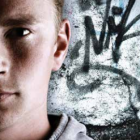
Tuesday, the Office of Juvenile Justice and Delinquency Prevention (OJJDP) released “Transfer of Juveniles to Adult Court: Effects of a Broad Policy in One Court,” a new bulletin culling data from the Pathways to Desistance Study. The longitudinal report examined outcomes for juveniles transferred to adult courts in Maricopa County, Ariz., with the authors concluding that 77 percent of young people that returned to their community after being sent to adult facilities reengaged in at least some level of “antisocial activity,” with approximately two-thirds eventually arrested or placed in an “institutional setting.”
“Adolescents in the adult system may be at risk for disruptions in their personal development, identity formation, relationships, learning, growth in skills and competencies and positive movement into adult status,” the report’s authors wrote. Researchers said transferring young people to adult courts might have a “differential” effect, with some juveniles becoming likelier to offend again, depending on the young person’s presenting offense and previous offense history. Researchers state that adolescent offenders transferred to adult courts, without any prior petitions, were much likelier to be re-arrested than young people that remained in the juvenile justice system. “Most of the youth in the study who were sent to adult facilities returned to the community within a few years, varying widely in their levels of adjustment,” the report says.






